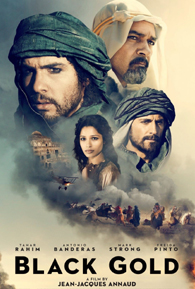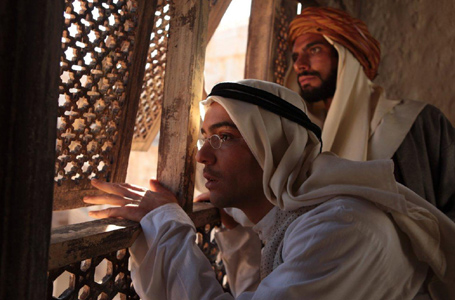
What's remarkable about Black Gold is how the story unfolds from here on. Those familiar with Liberal Hollywood will expect a political piece about the beginnings of western dependency on Middle Eastern oil and the American intervention and imperialism in Arabia. It's easy to imagine Michael Moore making a pointedly satirical 15-minute animated documentary clip on this subject, or George Clooney directing a political thriller centred on a naïve American reporter or Texan oilman in the midst of the Hobeika-Salma war.
With this premise, Jean-Jacques Annaud crafts a story that accords the Arabs agency in their own historical narrative. That is, they are not mere objects or pawns in a long-term game played by multinationals but the subject of a tragedy of their own devising. Annaud, together with the talented Banderas and Strong, draws up a world of crafty emirs fighting for both power and respect using diplomacy, intrigue, bribery, and open war. It is in the film's final act that we see Annaud's grand design blossom into an existential comedy about two Arab emirs fighting over oil, which one side sees as vastly important and worth a war, and the other sees as vastly unimportant in the grand scheme of things but worth a war anyway because the enemy was willing to break a peace treaty over it.
Instead of a shrilly liberal and cynical film, Annaud tells a story of the age-old dance between conservatism and modernism and wraps it in a romance about heroism and derring-do that John Milius (Conan the Barbarian, Red Dawn, Hunt for Red October) might have written in the 1980s.












 Printable Version
Printable Version



















Reader's Comments
Be the first to leave a comment on this page!
Please log in to use this feature.